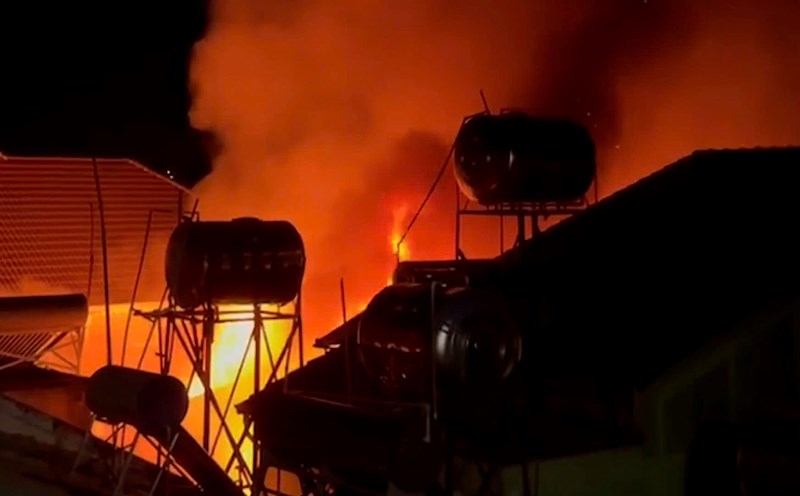Prolonged digestive symptoms - Don't be subjective
Many people ignore unusual signs in the stomach, leading to dangerous complications. Dr. Nguyen Thi Thu Hien, Gastroenterology Center, Bach Mai Hospital recommends early stomach scan.
- Upper-tenal pain (upper navel area) recurred many times or persisted.
- - Sour taste, heartburn, frequent reflux, especially when hungry or after eating.
- Nausea, vomiting of unknown cause, accompanied by loss of appetite and fatigue.
- Bloating, indigestion despite moderate eating.
These symptoms can warn of gastric ulcers, gastroesophageal reflux, and even cancer if not treated promptly, Dr. Hien emphasized.
Stomach endoscopy is applied in the diagnosis and treatment of above digestive diseases.
Signs of suspected dangerous disease
Dr. Hien notes that the following groups of signs should not be ignored, as they are often associated with serious damage:
- Sudden weight loss is not caused by diet or exercise.
- vomiting or diarrhea (sign of gastrointestinal bleeding).
- Difficulty swallowing, chills, feeling food stuck in the neck.
- Prolonged anemia of unknown cause.
"Gastrointestinal emphysema or a tumor can cause these symptoms. Endoscopy will help locate the lesion and treat it right during the procedure," the doctor explained.
Groups with high risk factors
Doctor Hien recommends periodic endoscopy for the following subjects:
- History of stomach disease, especially in people with severe gastric lumpy inflammation.
- Family of someone with stomach cancer (parents, siblings).
- People over 40 years old, smoking, drinking a lot of alcohol, prolonged stress.
- People at high risk of gastrointestinal bleeding when using anticoagulants or non-steroidal anti-inflammatory painkillers.
Depending on each specific case, periodic gastric endoscopy is recommended to be re-repeated every one to three years.
Regular health check-ups
Even if there are no symptoms, the high-risk group should have a 1-2 year stomach endoscopy to detect abnormalities early. "Many cases of early-stage stomach cancer are detected through periodic endoscopy, helping to treat effectively and less impressively. Don't hesitate when there are unusual signs. Today's gaster endoscopy is done quickly and safely with anesthesia technology, helping patients not feel uncomfortable," Dr. Hien shared.










